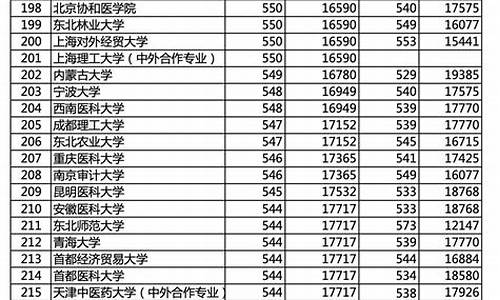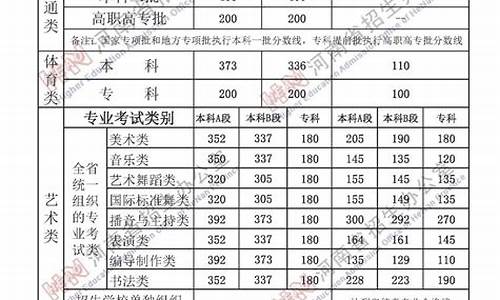高考宾语从句真题及答案,高考宾语从句真题
1.同样的高考英语题(谢谢详解)
2.精选高考英语语法填空真题(10篇)
3.请问whatever wherever这类的-ever能做引导词吗?
4.如何解析2011高考英语安徽卷第33题

宾语从句和定语从句的区别:宾语从句:只有主语+谓语动词,缺少宾语,整个从句充当句子宾语,(从句前面是一个动词)。定语从句是:主谓宾完整,整个从句作为定语补充说明宾语这个先行词,(从句前面是一个名词)。
定语从句结构
定语从句公式:定语从句=先行词+关系词+从句
先行词,指被定语从句修饰的名词、代词。
一般先行词出现在定语从句的前面。
关系词
关系词常有3个作用:
①连接作用,连接主句和定语从句。
②指代先行词。
③在定语从句中担当成分。
宾语从句时态
主句是一般现在时,从句根据实际情况使用任何时态。
例句:The headmaster hopes everything goes well.
主句是一般过去时,从句须用过去时态的某种形式。
例句:She was sorry that she hadn’t finished her work on time.
当宾语从句表示的是一个客观真理或者事实真理时,即使主句是过去时,从句也用一般现在时态。
例句:The teacher told his class that light travels faster than sound.
同样的高考英语题(谢谢详解)
从句分为三种:状语从句,定语从句和名词性从句。名词性从句是一种具有名词功能的非独立分句,它在复合句中能担任主语、宾语、表语、同位语、介词宾语等,因此根据它在句中不同的语法功能,名词从句又可分别称为主语从句、宾语从句、表语从句同位语从句。
名词性从句一向是NMET中的重要考点.通过对近几年高考试题的分析,名词性从句主要考察:语序问题,连接词的选用,从句的时态和语态问题,还有就是名词性从句与其他从句特别是定语从句的区别,我们先看一下一组句子:
1 .a we know, there is no life on the Mars
a.as b.which c.what d. that
2. What we know is that there is no life on the Mars.
3 .As is known ,there is no life on the moon.
4 .It is known that there is no life on the Mars
5 What is known is that there is no life on the Mars.
我觉得这组句子是复习名词性从句的很好的例子,它主要考察的是名词性从句与其他从句的区别和连接词的选择,既然名词性从句在句子中担任主语、宾语、表语、同位语、介词宾语,所以除充当同位语从句外,它在句中在语法上或意义上是不可缺少的。如上述的2,4,5题,在确定了从句类型之后,我们再确定连接词,连接词分为:
1.从属连词(只起引导作用不充当成分的that, whether和 if,as if只引导表语从句)
2.连接代词(what, whatever, who, whoever, whom, whose, which)
3.连接副词(when, where, how, why)
下面我们来具体谈谈名词性从句:
(一) 主语从句
在句中充当主语的从句是主语从句。
That we should use modern technology is a big issue.(that 引导主语从句不可省)
Whether he will come is not clear.(引导主语从句的whether放在句首不能用if 代替)
What surprised me most was that such a little girl could play the violin so well.
Whatever was said here must be kept secret.
When he will come is still unknown.
It is necessary that we should learn some English grammar.
一般来讲what/who等含特指意义,whatever/whoever等含泛指意义,意为“无论….”
It is generally considered unwise to give a child __C__he or she wants.
A. however B What C whatever D whichever
在主语从句中还要特别注意it作形式主语的情况,用 it 作形式主语的that- 从句有以下四种不同的搭配关系:
a. It + be +形容词+ that-从句It is necessary/ important / obvious that…
It is obvious that conductors and insulators are both important in industry.
很明显导体和绝缘体在工业中都很重要。
b. It + be + -ed 分词+ that-从句It is believed/ known to all /said/ reported that…
It is thought that he is the best player
大家都认为他是最好的选手
C.It + be +名词+ that-从句It is common knowledge/ a surprise / a fact that
It is common knowledge that the whale is not a fish
鲸鱼不是鱼,这是常识
d. It +不及物动词+ that-分句It appears/ happens/ occurred to me that…
It now appears that they are in urgent need of help.
看起来他们急需帮助。
(二) 宾语从句
宾语从句在句中充当宾语的成分。宾语从句可作谓语动词的宾语,也可作介词的宾语,也可作动词不定式等非谓语动词形式的宾语,还可作某些形容词的宾语从句。
Jenny thought (that) her teacher was unfair.
It all depends on whether they will support us.(不能用if替代,作介词宾语不能用if)
I am sure (that) he won’t mind.
(三)表语从句
放在系动词后作表语的从句。
The reason why the little actress has been such a success is that she is both clever and hard-working.
That’s what he is worried about.
That’s why I was late.
(四) 同位语从句
在复合句中用作同位语的从句叫同位语从句。它一般跟在某些名词后面,用以说明该名词表示的具体内容。可以跟同位语从句的名词通常有new,idea,fact,promise,question,doubt,thought,hope,message,suggestion,word(消息),possibility等。
The idea that England stands for fish& chips…is past.(高二课文unit5 THE BRITISH ISLES)
The problem whether we should continue to do the experiment has been solved.(不能用if)
名词性从句中的需要注意的以下三点:
(1) what与that
what 在名词性从句中要充当成分,that 在名词性从句中不充当成分也没有意义,只起连接作用,但连接主语从句以下几种情况that不可省:
a.引导主语从句放在句首时。
b.当一个句子有两个或多个并列的宾语从句时,引导第二个和以下几个从句的that不可省略。
c.由it作形式宾语时,引导的宾语从句中,that不可省。
d.引导同位语从句时,that不可省。
(2) whether与if
whether与if 均为"是否"的意思。 但在下列情况下,whether 不能被if 取代:
a. whether引导主语从句并在句首
b. 引导表语从句
c. whether从句作介词宾语
d. 从句后有"or not"
Whether he will come is not clear.
(3) Suggest, order 等其相关词性的相应的名词性从句的时态。
表示建议,命令,要求的动词的宾语从句,名词的表语从句,同位语从句的时态要用should do, should可以省略。
I suggest that we (should) hold a meeting next week。
The suggestion that he be invited was rejected。
从句的学习非一日之功,平时应加强对从句语法特征和意义特征的思考。对于从句,我们应先确定从句的类型,回忆相关用法,再确定正确的选项。
精选高考英语语法填空真题(10篇)
B
名词性从句
要点精讲
高考重点要求
1.掌握主语从句、宾语从句、同位语从句、表语从句的基本句型结构。
2.弄清名词性从句的连词意义,掌握其用法。
3.根据句子语义确定使用何种从属连词。
名词从句分为:主语从句、宾语从句、同位语从句、表语从句。我们看一下它们的属性。
如:that he failed the entrance examination
1)________made all of us surprised.
2)He told me ________.
3)The result is _______.
4)The news _____surprised me.
我们在四个句子中可以填入that he failed the entrance examination这个句子,发现都可成立。从上例不难看出,从本质上讲,这四类句子的属性是相同的,即:都起名词作用,只不过称谓不同,在整个句子中担当成分不同而已。
纵观几年高考,对复合句的考查重在连词,名词从句也不例外,基本上是针对引导词设题。
引导词的分类:
1.连接代词:what , who ,whom ,whose , which ,whatever,whoever,whichever,且这些词在从句中担当主、宾、表、定语作用。
2.连接副词:why, when , where, how 在从句中充当时间、地点、原因、方式、程度状语。
whether , if 在从句中不充当成分,但整个句式中不可缺少,用以体现事件的不确定性。
3.that 是名词从句中一个很活跃的词,但它只起连接作用,陈述某一事实,引导宾语从句时某些情况可以省略。
针对如下情况,可进行对比:
1)______he will come to call on is uncertain .
2)_______he will come to call on us is uncertain.
3)_____ he will come to call on us makes us unhappy.
从第一句中我们可以看出主语从句本身并不完整,缺少call on 的宾语,应加who;
第二句中表语为uncertain ,可知主语部分为未知信息,可加入when, why ,how ,whether 等;
第三句表一种已知事实,故应加入that 。
二.that ,whether, if 在名词从句中的使用情况
1.that 在宾从中大多数情况下可以省略,在主、宾、表中不可省去。
但注意以下宾从中that 不可省。
I know nothing of him except that he is from Henan.(介词后宾从中的that不可省)
2.whether ,if 宾语从句中可换用,但在主语从句、表语从句和同位语从句中不可用if。
但注意在宾语从句中不能用if 的情况:
It all depends on whether they will support us. (从句作介词宾语时不可用if)
He doesn't know whether to stay or not. (后直接跟不定式时,不能用if)
Please let me know if you like it.(这句是有双重意思的,如果视为宾语从句,就应换为whether.否则就引起歧义。
三.从句的区分
1)He tells me his idea ___we reduce the cost .
2)We are discussing the idea____he came up with yesterday.
第一句中we reduce the cost 应视为是idea 内容的一种说明,是同位语从句,而第二句中idea 可视为come up with 的宾语,缺少引导定从的关系代词that 或which ,当然可以省去关系代词。
四.分类复习中应注意的问题:
1.在主语从句中it 的使用
That he will come to the party is certain。表意上并没有错误,但实际上并不太符合用语习惯,因此采用it 作形式主语,使句式平衡。
It is certain that he will come to the party.
同样道理,it 也可用作形式宾语。
2.宾语从句中的情况
1)时态的呼应问题。
2)特殊句式:
动词suggest, insist, demand, order ,request, require等引起的从句需用虚拟句式
主语+should +原形动词,should也可省。
He suggested that we should pay a visit to that town.(建议)
但注意:
What he said suggested that he had known the truth.(表明)
同样,insist
He insisted that we do it at once.(坚持要做)
He insisted that he had done nothing wrong.(坚持说一种事实)
wish 引起从句时从句中时态常转为过去时态。
I wish that there were no examinations in school.
How he wishes he had worked hard in junior middle school!
Whatever与no matter what
It is generally considered unwise to give a child ____ he or she wants.
A.whatever B.no matter what
C.whenever D.no matter when
此题应选A。容易误选B。选项C,D显然是错的,因为句中的wants缺宾语,而C,D两项不能作宾语。至于C,D的区别,可这样描述:no matter what只能引导状语从句,而不引导名词性从句。而whatever既可引导名词性从句(=anything that),也可引导状语从句(=no matter what):
1.引导名词性从句(只用whatever):
无论他做什么都是对的。
正:Whatever he did was right.
误:No matter what he did was right.
山羊找到什么就吃什么。
正:Goats eat whatever they find.
误:Goats eat no matter what they find.
2.引导状语从句(两者可换用):
无论你说什么,我都不会相信你。
正:Whatever you say,I won't believe you.
正:No matter what you say,I won't believe you.
无论发生什么,都要保持镇定。
正:Keep calm,whatever happens.
正:Keep calm,no matter what happens.
如何区分引导名词性从句的what, that
—I think ____ he needs is more practice.
—Yes. ____ he needs more practice is clear.
A.what, What B.that,That
C.what, That D.that, What
此题应选C。其余三项均可能被误选。What和that都可以引导名词性从句,但有区别:
1.what引导名词从句时,它在从句中要充当句子成分(主语、宾语等),而that引导名词从句时,它在从句中不能充当句子成分。
2.what引导名词从句时,它有词义(表示:什么;所…的[东西]);而that引导名词从句时,它没有词义。
请做以下试题,注意区别what和that:
1. ____ you said is different from the thing ____ he told us.
A.What,what B.That,that
C.What,that D.That,what
2.—I think he said is true.
—But don't forget the fact ____ he is a cheat.
A.what,what B.that,that
C.what,that D.that,what
3. ____ surprised us most is ____ he spoke English so well.
A.What,what B.That,that C.What,that
1.C 2.C 3.C
引导名词从句的whether与that
____ we'll go camping tomorrow depenps on the weather.
A.If B.Whether C.That D.When
此题应选B。容易误选A,C。
1.关于if与whether:两者都可引导宾语从句,常可换用;但若引导主语从句,则用whether(不用if),排除A。又如:
他是否会来还是个问题。
误:If he will come is a question.
正:Whether he will come is a question.
2.关于whether和that:两者都可引导主语从句,其区别主要应从句意来考虑:whether表示“是否”,由它引导的主语从句的意思通常是不确定的;that引导主语从句时,本身没有词义(that 在其它名词性从句中也没有词义),但是由that引导的整个主语从句的意思通常是确定的。试比较:
1.a.That we'll hold a meeting is decided.我们要召开一次会议,这已决定了。
b.Whether we'll hold a meeting is not decided.我们是否要开一个会,这还没有决定。
2.a.That he has left here is clear.他已离开了这儿,这点很清楚。
b.Whether he has left here is not clear.他是否已离开这儿,这还不清楚。
3.a.That he can finish it in two hours is clear.
b.whether he can finish it in two hours is a question.
引导名词性从句的what
____ he said at the meeting astonished everyone present.
A.What B.That C.If D.Whether
此题应选A。选项C(if)显然不能选,因为if通常不能引导主语从句;选项B(that)和D(whether)虽然都可以引导主语从句,但两者除了意思不合题意外,还有它们在主语从句中都不充当句子成分,而此句中的he said缺宾语。
在名词性从句中,what根据情况不同,可能有两方面的用法和意思:
1.用作连接代词,表示“什么”(由疑问词变来):
I don't know what he gave her.我不知道他给了她什么。
What he will say at the meeting is not known to us.他在会上将说些什么,我们还不知道。
2.表示“所…的(东西)”,在结构上相当于一个名词加一个定语从句(所以有人称这样用的what为关系代词型的what):
把你买的东西拿给我看。
Show me what you bought.
→Show me the thing that you bought.
这是他想要的东西。
This is what he wants.
→This is the thing that he wants.
我们需要的是钱。
What we need is money.
→The thing that we need is money.
宾语从句疑难扫描
宾语从句的一般用法同学们一定已经掌握了,现对其疑难点进行讲解,以便你得心应手地使用它。
1. 引导词that的取舍
that引导宾语从句时,特别是在口语中 that常可省略。但在下列情况下,引导宾语从句的that一般不省略。
1)当由两个或两个以上的that引导的从句作同一个动词或介词的宾语时,第二个以及以后从句中的that不宜省略。如:
He said(that)he couldn't tell you right away and that you wouldn't understand.
2)当动词think, make,feel,consider等后用it作形式宾语来代替that引导的宾语从句时。如:
We think it necessary that we should practise spoken English every day.
3)当that引导的宾语从句中的状语紧接that时。如:
He said that even if it rained,he would be able to come.
2.引导词whether和if的选用
二者引导宾语从句时,一般可换用。但在下列情况下,通常只能用whether而不能用if。
1)在动词discuss和介词后作宾语时。如:
We discussed whether we should close the shop.
It all depends on whether they will support us.
2)在引导词后紧接or not时。如:
We didn't know whether or not she was ready.(比较:We didn't know whether/if she was ready or not.)
3)当用if易引起歧义时。如:
Please let me know whether you likeit.(若该句用if,也可理解为:如果你喜欢它,请告诉我。)
3. 从句中谓语动词时态的选择
一般地说,当主句谓语动词使用的是过去的时态时,后面宾语从句中的时态要受主句时态的限制,用相应的过去时态。但若宾语从句所表示的是客观真理(规律)或人和物的经常性、习惯性以及阶段性的动作或事实时,则从句的时态不受主句时态的限制。这种情况下从句常用一般现在时。如:
When I was a boy,my teacher told me that the earth is round.
He told me he goes to the park every day.
4.从句中使用虚拟语气的场合
1)在表示建议(suggest),要求(demand,insist)和命令(order)等动词后的宾语从句中,常用“(should)+动词原形”的形式来表示虚拟语气。如:
I suggest that we(should)have a rest now.
2)表示愿望的wish后的宾语从句中须用虚拟语气。如:
I wish I could fly.(用过去式表示与现在事实相反的愿望)
I wish I had known it before.(用过去完成式表示过去未实现的愿望)
I wish you would stay a little longer.(用would或would +动词原形来表示将来的愿望)
5. 含宾语从句的疑难句型
1)I/We don't think +宾语从句
这是一个常见的否定转移句型。使用时常把宾语从句中的否定词not移至主句中,即主句谓语用否定式而从句谓语则用肯定式。该结构常译为“我(我们)认为……不……”。如:
We don't think there is anything of interest in your pictures.我们认为你的画并没有什么有趣的地方。
2)疑问词(what,how,who等)+do you think +其它句子成分
这是一个复杂特殊疑问句。它由一个一般疑问句(do you think)和一个特殊疑问句(疑问词+其它句子成分)合并而成。如:
When do you think he will be back?你认为他会什么时候回来呢?
注:常用于上面两结构的主句动词除think外,还有believe,suppose,imagine等。
请问whatever wherever这类的-ever能做引导词吗?
语法是语言的骨架,为了帮助考生们熟练掌握语法,下面我为大家搜索整理了关于 高考 英语语法填空真题(10篇),欢迎参考练习,希望对大家备考有所帮助!想了解更多相关信息请持续关注我们应届毕业生培训网!
Passage 1 (2015?新课标全国Ⅰ)
阅读下面材料,在空白处填入适当的内容(1个单词)或括号内单词的正确形式。
Yangshuo,China
It was raining lightly when I __1__ (arrive) in Yangshuo just before dawn.But I didn't care.A few hours __2__,I'd been at home in Hong Kong,with __3__ (it) choking smog.Here,the air was clean and fresh,even with the rain.
I'd skipped nearby Guilin,a dream place for tourists seeking the limestone mountain tops and dark waters of the Li River __4__ are pictured by artists in so many Chinese __5__ (painting).Instead,I'd headed straight for Yangshuo.For those who fly to Guilin,it's only an hour away __6__ car and offers all the scenery of the better-known city.
Yangshuo __7__ (be) really beautiful.A study of travelers __8__ (conduct) by the website TripAdvisor names Yangshuo as one of the top 10 destinations in the world.And the town is fast becoming a popular weekend destination for people in Asia.Abercrombie & Kent,a travel company in Hong Kong,says it __9__ (regular) arranges quick getaways here for people __10__ (live) in Shanghai and Hong Kong.
语篇导读
桂林山水甲天下,阳朔风光甲桂林。作者讲述了从香港去阳朔旅游时的所见。
1.解析:考查动词的时态。主句谓语动词使用了过去进行时,根据语境此处要用一般过去时态。
答案 arrived
2.解析:考查副词的用法。由语境可知,几个小时之前我还在香港的家中,由此可知before/earlier符合句意。
答案 before/earlier
3.解析:考查形容词性物主代词的用法。空格后面有名词smog,故要使用形容词性物主代词。
答案 its
4.解析:考查定语从句关系代词的用法。由句子结构不难判断这是一个定语从句。先行词为指物的mountain tops and dark waters,关系词在从句中作主语,因此答案为that/ which。
答案 that/ which
5.解析:考查名词的复数。?so many+复数名词?为一常用短语。
答案 paintings
6.解析:考查介词的固定用法。根据句意可知,这只是驱车一小时的路程。?by+交通工具名词?为一固定短语。
答案 by
7.解析:考查主谓一致和动词时态。本段介绍阳朔的自然条件,属客观事实,要用一般现在时,由于主语是单数第三人称形式,因此答案为is。
答案 is
8.解析:考查过去分词短语作后置定语的用法。study与conduct之间为动宾关系,故用表示被动的过去分词形式。此外,by是解题的关键词,conducted by...意为?由?所做的?。
答案 conducted
9.解析:考查副词的用法。该词修饰谓语动词arrange,故要用其副词形式。
答案 regularly
10.解析:考查现在分词短语作后置定语的用法。由于live与其所修饰的名词people之间为逻辑上的主谓关系,故用表示主动意义的现在分词形式。
答案 living
Passage 2 (2015?新课标全国Ⅱ)
阅读下面材料,在空白处填入适当的内容(1个单词)或括号内单词的正确形式。
The adobe dwellings(土坯房)__1__(build) by the Pueblo Indians of the American Southwest are admired by even __2__ most modern of architects and engineers.In addition to their simple beauty,what makes the adobe dwellings admirable is their __3__(able) to ?air condition?a house without __4__(use)electric equipment.Walls made of adobe take in the heat from the sun on hot days and give out that heat __5__(slow)during cool nights,thus warming the house.When a new day breaks,the walls have given up their heat and are now cold enough __6__ (cool) the house during the hot day:__7__ the same time,they warm up again for the night.This cycle __8__ (go) day after day: The walls warm up during the day and cool off during the night and are thus always a timely offset(抵消)for the outside temperatures.As__9__(nature) architects,the Pueblo Indians figured out exactly__10__thick the adobe walls needed to be to make the cycle work on most days.
语篇导读
相比现代化的建筑,简陋的土坯房可谓丑陋不堪。但当代的 建筑师 却对其情有独钟。短文主要介绍了土坯房能够调节温度的原理。
1.解析:考查过去分词短语作后置定语。主语dwellings与动词build之间为逻辑上的动宾关系,故用过去分词形式。又由by一词的暗示也可知用表示被动意义的过去分词。
答案 built
2.解析:考查定冠词的用法。空格之后为形容词的最高级形式,故填定冠词。
答案 the
3.解析:考查形容词与名词的转换。形容词性物主代词their之后应当用名词,故将able转化为其名词形式。
答案 ability
4.解析:考查介词的用法。介词without之后的动词要用动名词形式。
答案 using
5.解析:考查副词的用法。由土坯制成的墙壁在炎热的白天吸收太阳的热量并在凉爽的夜间慢慢将热量释放出来。修饰谓语动词give out,因此要用副词形式。
答案 slowly
6.解析:考查固定句式的用法。?形容词+enough+动词不定式?为一常用句式。
答案 to cool
7.解析:考查固定短语的用法。at the same time意为?同时?,是一个常用介词短语。
答案 at
8.解析:考查动词的时态。这是一篇说明文,主要介绍了土坯房冬暖夏凉的原理,故用一般现在时态。
答案 goes
9.解析:考查形容词的用法。修饰名词architects,故要用形容词形式。
答案 natural
10.解析:考查宾语从句的连接词用法。分析句子结构可知,这是一个宾语从句。根据形容词thick及结构可知这里的意思是印第安人要算出土坯墙的确切厚度。所以答案为how。
答案 how
Passage 3 (2015?福建)
阅读下面短文,根据以下提示:1)汉语提示,2)首字母提示,3)语境提示,在每个空格内填入一个适当的英语单词,所填单词要求意义准确,拼写正确。
Sometimes we have disagreements with people.When this (1)h_____, the important thing is to try not to let a calm discussion turn into a heated argument.Here (2)_____ my tips for you.
The (3)f_____ thing I would say is that the way you begin the conversation is very important.
Imagine you are a student and you share a flat (4)_____ another student who you think isn't doing her share of the housework.If you say, ?Look, you never do your share of the housework.(5) _____ are you going to do about it?, the discussion will very soon turn into an argument.It's much more (6)_____ (有帮助)to say something like, ?I think we had (7)b_____ have another look about how we divide up the housework.Maybe there is a better way of dealing with it.?
My second piece of (8)a_____ is simple.If you're the person who is in the wrong, just admit it! This is the easiest and best way to avoid an argument.Just make an (9)_____ (道歉), and move on.The other person will have more respect for you (10)_____ the future if you do that.
答案:
1.happens 2.are 3.first 4.with 5.What 6.helpful/beneficial 7.better 8.advice 9.apology 10.in
Passage 4 (2015?湖南)
Directions: Complete the following passage by filling in each blank with one word that best fits the context.
Research has become both simpler and more complex. It's simpler because, __1__ you have a computer, you can find information you need by searching the Internet. For all your information, you don't have to go to __2__ library to find the relevant resource and take notes on it. Instead, you can find some sources from the Internet __3__ print the copies needed.Remember, however, that you should usually consult different types of sources. That is, you __4__ always rely just on the Internet for your research.
While finding information is easier than ever, at the same time, researching has become __5__ complex. There is a lot more material available, which means you may be overwhelmed __6__ the amount of information. You need to learn __7__ to sort through and find the relevant information for your particular project. Also, __8__need to check the accuracy of it.
语篇导读
随着电脑和因特网的出现,研究变得既简单又复杂。一方面,我们不必像以往一样在书中搜索资料,这为我们提供了极大的方便;另一方面,网络中众多的资料良莠不齐,选择准确的信息使我们的工作变得愈加复杂。
1.解析:考查状语从句。根据句意,如果你有了电脑,你可以通过上网获得所需的信息。
答案 if
2.解析:考查冠词。go to the library去图书馆;in the library 在图书馆。
答案 the
3.解析:考查连词。and 连接并列谓语find和print。
答案 and
4.解析:考查情态动词。根据上文你应该(should)查阅不同的资料。
答案 shouldn't
5.解析:考查形容词比较级。参见上文第一句more complex。
答案 more
6.解析:考查介词。be overwhelmed with 面临,陷入。
答案 with
7.解析:考查疑问词。根据句意,你需要学习如何分类并找到特定任务的相关信息。how to do 是含有疑问词的不定式,在此处作宾语。
答案 how
8.解析:考查代词。参见上文You need to learn how to sort throug...
答案 you
如何解析2011高考英语安徽卷第33题
一、引导状语从句
它们都可用来引导状语从句(让步状语从句),其大意为“无论什么(是谁、哪一个、什么时候、什么地方、如何)”等,相当于英语中的 no matter what (who, which, when, where, how)。如:
Whatever [No matter what] you say, I believe you. 无论你说什么,我都相信你。
Whoever [No matter who] telephones, tell them I’m out. 不管是谁打电话,都说我出去了。
Whenever [No matter when] you come, you are welcome. 你什么时候来,我们都欢迎。
We found the people friendly wherever [no matter where] we went. 无论我们走到哪里,我们都发现人们很友好。
However [No matter how] much he eats, he never gets fat. 无论他吃多少,他都不发胖。
注:有时从句谓语可用情态动词:
无论他在哪里,我都要找到他。
正:I’ll find him, wherever he is.
正:I’ll find him, wherever he may be.
无论发生什么事都要保持冷静。
正:Keep calm, whatever happens.
正:Keep calm, whatever may happen另外,whoever 的宾格也是 whoever, 而不是 whomever, 后者在现代英语已基本不用,有的词典已不收录此词。如:
Whoever you marry, make sure he can cook. 不管你跟谁结婚,他一定要会做饭才行。
二、引导名词性从句
除引导状语从句外,whatever, whoever, whichever等还可引导名词性从句(主语从句或宾语从句)。如:
He does whatever she asks him to do. 她要他做什么,他就做什么。
I will just say whatever comes into my mind. 我想到什么就说什么。
Whoever breaks the rules will be punished. 谁违反这些规则都将受到处罚。
I’ll give the ticket to whoever wants it. 请想要这票,我就把它给谁。
Whichever team gains the most points wins. 哪个队得分最多,哪个队就赢。
Whichever of us gets home first starts cooking. 我们当中无论哪个先到家,哪个就先开始做饭。
三、用于加强语气
有时用于加强语气,含有“究竟”、“到底”之义。如:
Whatever [What ever] do you mean? 你到底是什么意思?
Whenever [When ever] did you find time to do it? 你什么时候有空做这事?
Wherever [Where ever] can the children be? 孩子们究竟会在哪里呢?
Whoever [Who ever] told you that? 到底是谁告诉你的呢?
Whichever [Which ever] did you choose? 你到底选了哪个?
However [How ever] did you escape? 你到底是怎样逃出来的?
“ No matter+ 疑问词”与“疑问词+ ever ”用法透析
1. “ No matter +疑问词”意为“无论……”、“不论……”,用来引导让步状语从句。如: no matter who / whom (无论谁), no matter what (无论什么), no matter which (无论哪一个), no matter how (无论怎样)等。如:
You are always welcome no matter where you are.
无论在何地,您总是会受到欢迎的。
No matter what may happen, they've decided to leave this evening.
不管发生什么事,他们已决定今晚离开。
No matter who you may be, you have no right to do such a thing.
不论你是谁,你都无权做这样的事。
No matter when my motherland needs me, I will go without hesitation.
无论什么时候,只要祖国需要我,我都会毫不犹豫地出发。
No matter how hard it may be, I will carry it out.
无论此事有多难,我都会去做。
2. “疑问词+ ever ”相当于“ no matter + 疑问词”, ever 本是一个加强语气的词,加在疑问词后面作后缀,不仅使疑问词的语气加强,而且变为具有让步意义的一个复合词,可用于引导让步状语从句。例如:
Whoever ( No matter who ) breaks the law, he should be punished.
无论谁违反法律,都应该受到惩罚。
Whatever you do, you must do it well.
不管做什么事,你都要做好。
Whatever problem you have, turn to me.
不管你有什么问题,都可以找我帮忙。
She is willing to help you, however busy she is.
无论多忙,她都愿意帮助你。
Wherever he is, he will be thinking of you.
无论在哪儿,他都会想着你。
3. 虽然“ no matter +疑问词”和“疑问词+ ever ”都可以用来引导让步状语从句,但后者的用途更广,这类词( whoever, whatever, whichever, whenever, wherever 等)还可用来引导主语从句、宾语从句、时间或地点状语从句等。例如:
Whoever comes to the party will receive a gift.
(主语从句)来参加晚会的人都会收到一份礼物。
比较: Whoever comes to the party, he will receive a gift. (让步状语从句)= No matter who comes to the party, he will receive a gift.
无论谁来参加晚会,都会收到一份礼物。
You can take whichever book you like best. (宾语从句)你可以拿走你喜欢的任何一本书。
Whenever we see him, we speak to him. (时间状语从句)每当我们见到他时,我们都跟他说话。
一、注意从句的时态
由no matter what/who/where/when…引导的从句往往用一般现在时或一般过去时。如:No matter who you are, you must obey the rules. 无论你是谁,都应该遵守规则。
二、注意被修饰的名词、形容词以及副词的位置
no matter what/whose/which修饰名词时,该名词必须紧跟其后;no matter how修饰形容词或副词时,该形容词或副词也必须紧跟其后。如:No matter how hard he works, he find it difficult to make ends meet. 无论他多么努力工作,却总是入不敷出。
三、注意“no matter+疑问词”结构与“疑问词+ever”在用法上的区别
1. “no matter+疑问词”结构只能引导让步状语从句,这时可以和“疑问词+ever”互换。如:No matter where he may be (=Wherever he may be), he will be happy. 他无论在什么地方都快乐。
2. 而“疑问词+ever”还可以引导名词性从句。如:Give this book to whoever likes it. 谁喜欢这本书就给谁吧。(这里不能用no matter who。)
3. whoever既可引导名词性从句,又有在从句中作主语、宾语、表语等;whomever也可引导名词性从句,但只能在从句中作宾语。如:You may invite whomever you like.
4. whatever表示“无论什么”,没有一定的范围限制;whichever表示“无论哪一个、无论哪些”,其后可接一个名词。如:Eat whichever cake you like.
巩固练习:
1. team wins on Saturday will go through to the national championships.
A. No matter what B. No matter which
C. Whatever D. Whichever
2. we gave him something to eat, he would save it up for his little sister.
A. Whatever B. However C. Whenever D. Whichever
3. Doctor Godwin says that what forceful arguments against cigarettes there are, many people insist on smoking.
A. though B. however C. no matter D. even if
4. In peace, too, the Red Gross is expected to send help there is human suffering.
A. whoever B. however C. whatever D. wherever
5. , Mother will wait for him to have dinner together.
A. However late is he B. However he is late
C. However is he late D. However late he is
6. Could you do me a favor?
It depends on it is.
A. which B. whichever C. what D. whatever
7. The old tower must be saved, the cost.
A. however B. whatever C. whichever D. wherever
8. Sarah hopes to become a friend of shares her interests.
A. anyone B. whomever C. whoever D. no matter who
9. You can eat food free in my restaurant you like.
A. whenever B. wherever C. whatever D. however
10. much advice I gave him, he did exactly what he wanted to do.
A. How B. Whatever C. However D. What
参考答案:
1~5 DCCDD 6~10 CBCAC
however用法详解
一、考点描述
however是高考英语中一个十分重要的考点,近几年来每年的各省考题均有所涉及。请看两道典型高考真题:
1. You should try to get a good night’s sleep _____ much work you have to do.
A. however B. no matter C. although D. whatever
分析答案选A。however作连接副词时,与no matter how相当,后接形容词或副词,意为“无论……”“不管……”。句意是:不管你有多少工作要做,你都应该好好休息一个晚上。
2. He tried his best to solve the problem, _____ difficult it was.
A. however B. no matter C. whatever D. although
分析答案选A。因difficult是形容词,修饰形容词要用连接副词however(无论如何,不管多么),引导一个让步状语从句。
二、用法详解
不管however以何种形式出现在高考题中,它都不外乎以下两种用法。
1. 用作副词
(1) 表示让步:意为“无论如何”“不管怎样”,用来修饰形容词或副词,其词序为:however+形容词或副词+主语+谓语。这样用的however其实具有连词的功能,用以引导让步状语从句。如:
Phone me when you arrive, however late it is. 你到达之后就给我打电话,不论多么晚也要打。
however much he eats, he never gets fat. 不管他吃多少,他永远吃不胖。
however cold it is, he always goes swimming. 不管天有多冷,他都去游泳。
You won’t move the stone, however strong you are. 不管你力气有多大,也休想搬动那块石头。
however far it is, l intend to drive there tonight 不管有多远,我今晚也要开车到那儿去。
用于此用法时,请注意以下几点:
①此用法属however所有用法中最重要的考点,同学们务请引起高度重视。
②这样用的 however与 no matter how 大致同义。如:
People always want more, however [no matter how] rich they are. 人总是富了还想再富。
however [No matter how] hard I worked, she was never satisfied. 无论我多么努力地工作,她从来没满意过。
③有时从句谓语可用情态动词。如:
Don’t laugh, however funny it may be. 无论多么有趣也不要笑。
I’ll try to finish it in time, however hard it may be. 无论多么难,我也要按时完成。
④“however+形容词或副词+主语+谓语”有时可以有所省略。如:
I refuse, however favorable the conditions. 不管条件如何有利,我都不干。(conditions后省去了are)
I’d rather have a room of my own, however small (it is), than share a room. 无论房间多么小,我宁愿一个人住一间,而不愿意与别人合住一个房间。
A grammar rule, however true (it is), is useless unless it can be understood. 一条语法规则,不管如何正确,除非能懂,否则毫无用处。
(2) 表示转折:尤其用于谈及一个既成事实时,表示转折,其意为“可是”“仍然”等。可放在句首、句中或句末,通常用逗号与句子其他成分隔开。如:
My father, however, did not agree. 但是,我父亲不同意。
My room is small; however, it’s comfortable. 我的房间很小,但却很舒服。
He said that it was so; he was mistaken, however. 他说情况如此,可是他错了。
注:however不能像 but(但是)那样直接连接两个句子(注意正句中的标点符号)。如:
我们都已尽了最大的努力,不过我们还是输了。
误:We all tried our best, however we lost the game.
正:We all tried our best, but we lost the game.
正:We all tried our best; however, we lost the game.
正:We all tried our best. however, we lost the game.
(3) 表示惊奇或强调:相当于how ever的用法,其意为“究竟怎样,到底以什么方式”。如:
however did you get here without a car? 没有汽车你究竟是怎样来的呢?
however does he manage to write music when he is so deaf? 他聋成这个样子,究竟是怎样从事作曲的呢?
2. 用作连词
用作连词,引导方式状语从句,表示“无论以何种方式”“不管怎样”。如:
however it may be, I shall take your word. 无论如何,我将会相信你的话。
however I approached the problem, I couldn’t find a solution. 这一问题我不管怎样都无法解决。
however you travel, it’ll take you at least two days. 无论你怎么个走法,至少要两天时间。
The painting looks wrong however you look at it. 这张画不论怎么看都显得不对劲。
三、命题切入点
高考以however切入命题的可能性主要有两个方面:
1. 直接考查however的用法。如考查其句型结构(尤其是词序),考查它与其他相似词语whatever, whenever, wherever, whichever, whoever等在用法和意义上的区别。如:
(1) _____ rich one may be there is always something one wants.
A. whatever B. Whenever C. however D. Wherever
分析答案选C。however 用于修饰形容词rich,在意义上相当于no matter how。
(2) We should report any incident, _____.
A. however serious or minor it is B. how serious or minor is it
C. it is how serious or minor D. it is however serious or minor
分析答案选A。however 引导让步状语从句时的语序为“however+形容词或副词+主语+谓语”。
(3) _____ I say, he always disagrees.
A. however B. whatever C. Whichever D. Whoever
分析答案选B。whatever 在此用作动词say的宾语,在意义上相当于 no matter what。
(4) _____ she goes, there are crowds of people waiting to see her.
A. Wherever B. however C. Whichever D. Whoever
分析答案选A。根据句意可知,说话者强调的是地点,故用wherever。
2. 用however作为干扰项进行考查。如:
An awful accident _____, however occur the other day.
A. does B. did C. has to D. had to
分析此题正确答案应选B,句末的 the other day 意为“前几天”,所以句子应用过去时态,而选项D不合题意,故选B。此句有两个难点:一是句中插有 however 一词,分散了同学们的注意力;二是所填选项B为许多同学所不熟悉的强调用法。
whatever, whoever, whichever引导名词性从句
1. whatever引导的名词性从句
Whatever的意思是“所…的一切事或东西”,可视为what的强调说法,其含义大致相当于anything that,whatever在从句中可用作主语、宾语、定语:
Whatever he did was right.
无论他做什么都是对的。
Give them whatever they desire.
他们想要什么就给他们什么。
I will just say whatever comes into my mind.
我想到什么就说什么。
Goats eat whatever (food) they can find.
山羊找到什么(食物)就吃什么(食物)。
I’m going to learn whatever my tutor wishes.
我将学习任何我的导师愿意我学的东西。
He does whatever she asks him to do.
她要他做什么,他就做什么。
Talk to me about whatever is troubling you.
给我谈谈任何使你烦恼的事。
One should stick to whatever one has begun.
开始了的事就要坚持下去。
She would tell him whatever news she got.
她得到的任何消息都会告诉他。
You can have whatever allowance you like.
你想要多少津贴就给你多少津贴。
2. whoever引导的名词性从句
whoever的意思“任何…的人”,在意义上大致相当于 anybody who。whoever在从句中可用作主语或宾语:
I’ll take whoever wants to go.
谁想去我就带谁去。
She can marry whoever she chooses.
她愿意嫁谁就嫁谁。
Whoever wants the book may have it.
任何人要这书都可拿去。
Whoever comes will be welcome.
谁来都欢迎。
Whoever you invite will be welcome.
任何你邀请的人都欢迎。
Whoever breaks this law deserves a fine.
违反本法者应予以罚款。
I’ll give the ticket to whoever wants it.
请想要这票,我就把它给谁。
注意
(1) whoever既用作主格也用作宾语(作宾语时不宜用whomever,因为在现代英语中whomever已几乎不用)。
(2) 注意以下受汉语意思影响而弄错的句子:
误:Who wins can get a prize. / Anyone wins can get a prize.
正:Whoever wins can get a prize. / Anyone who wins can a prize.
33. His writing is so confusing that it's difficult to make out ___ it is he is trying to express.
A. that B. how C. who D. what
答案:D.
翻译:他的书写是如此的不清楚,以至于很难分辨清他试图表达(的东西/意图是)什么。
解释:
1. 此句是一个典型的so..that..句型,that后面引导的是结果状语从句。
2. 此结果状语从句中,make out后面是一个宾语从句,且该从句中的it is后面却是表sth的表语,当然答案只能选用D what.
而he is trying to express是定语从句,其关系词做express的宾语,所以被省略。
声明:本站所有文章资源内容,如无特殊说明或标注,均为采集网络资源。如若本站内容侵犯了原著者的合法权益,可联系本站删除。












